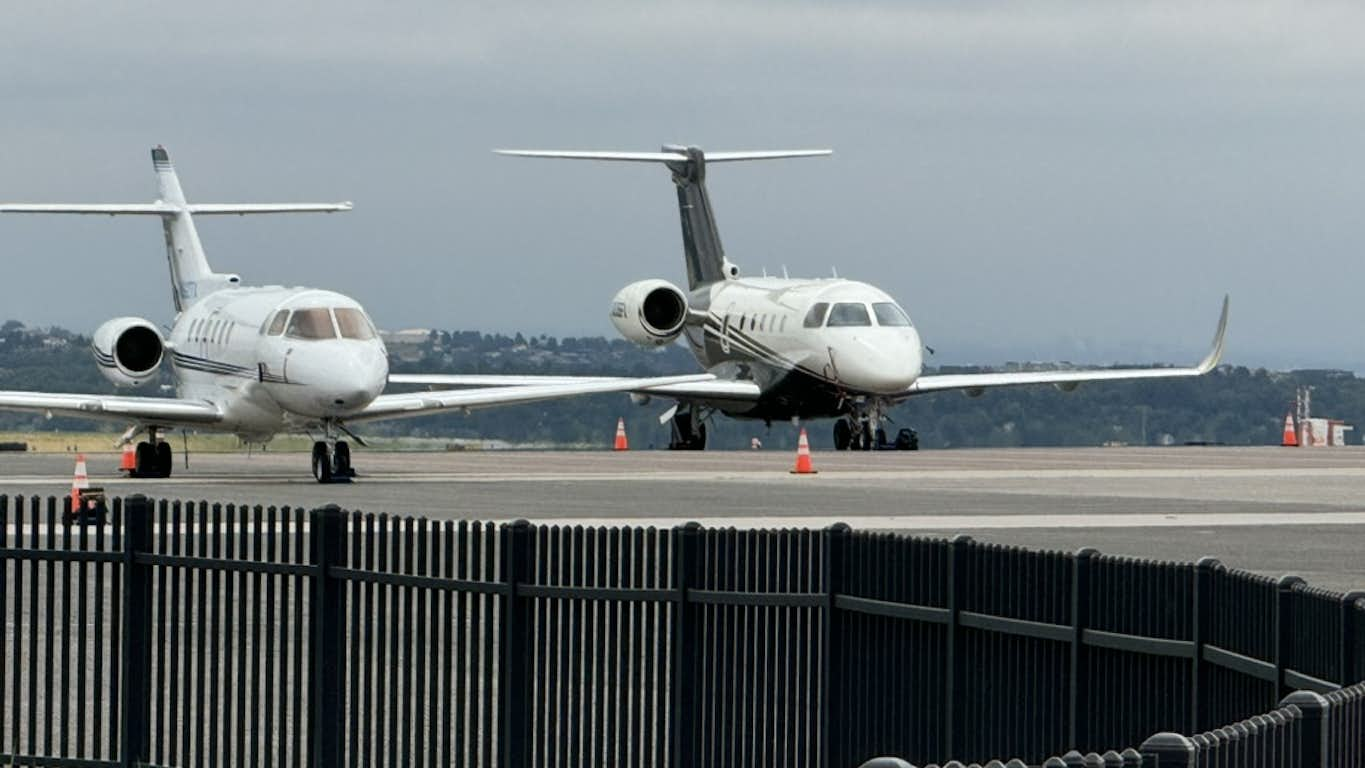
Despite the wishes of anti-wealth and climate campaigners, private jets have a robust future in Europe, says WingX’s Richard Koe.

As Europe’s private aviation sector continues to fend off initiatives by anti-wealth groups and left-wing politicians to ban or limit the use of private jets, it’s clear that neither trains nor airlines offer a suitable replacement, according to a transportation expert.
WingX Managing Director Richard Koe told attendees at the European Business Aviation Convention & Exhibition earlier today that private jets will continue to demonstrate themselves as a necessity and not an extravagance.
To begin with, Koe pointed to France, which has banned domestic airline flights on several routes. The government says trains are a more climate-friendly alternative.
However, Koe painted the move as symbolic and nonsensical.
He said an analysis of train schedules showed that just two major cities are within two hours by train from Paris, compared to 220 cities by air.
While there are 80 cities within a six-hour train journey from Paris, there are 320 destinations that are less than two hours by air.
However, scheduled airlines are not a private jet replacement, he added.
He told the EBACE attendees here in Geneva that regional airline connectivity, which collapsed during the pandemic, is still just 50% of what it was before the pandemic.
Back then, there were 2,582 connections between 271 European metro areas.
At the end of 2023, there were just 1,240 connections linking just 200 metro areas.
Using the U.K. as an example of how private jets facilitate efficient travel, he noted that while there are 10 cities within two hours by train from London, you can reach 170 cities by air.
However, again, scheduled airlines are not a replacement for business aviation.
Private aviation offers 3,150 time-saving nonstop links between 120 U.K. metro areas and 123 airports, six times more than scheduled airlines that offer 506 connections between 30 metropolitan areas and 30 airports.
What’s more, even when nonstop airline flights are available, nearly 30% arrive late compared to 22% in 2019.
READ: Private aviation CEOs bullish on sustainability, public image goals
WingX data shows European private jets flying 7.1% higher than in 2019 through April; however, there are wide variances.
Fractional ownership operators such as NetJets and Flexjet are up 53.7% compared to pre-Covid levels.
Branded charter, which includes the likes of VistaJet, is 4.4% higher.
On the other hand, corporate flight department flying is down 25.2% compared to 2019.
Managed aircraft fleet flying has dropped back to 1.2% below where they were five years ago.
Aircraft management still made up the most significant activity, 36% of flying.
Branded charter accounted for 27% of flying.
Despite the hyper-growth, fractional ownership flights are just 12% of European totals.
In North America, fractional operators comprise 20% of private flights.
Europe represents 12.7% of global private aviation activity, second behind the U.S., which holds a 71.2% share of the global private jet market.
READ: New private jet deliveries expected to hit highest mark since 2009